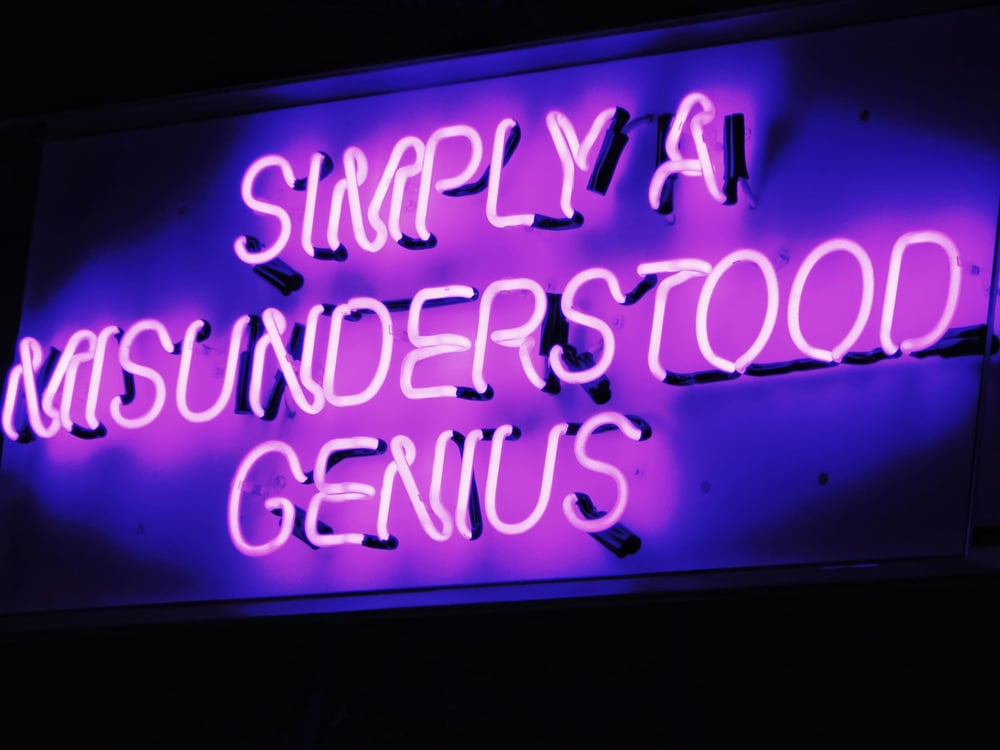The Beautiful and Necessary Art of Messy First Drafts

When you sit down to compose the first draft of your novel, it’s entirely reasonable to expect disaster. That is, after all, what a first draft is. It’s true for me, you, and your favorite author.
Now, I may not be the first person to tell you this. I definitely won’t be the last. Writers hear it constantly—that there’s no avoiding the messy first draft, that what we put on the page won’t come close to the masterpiece we imagined in our mind.
It’s a wonder any of us ever find the nerve to even start, knowing what we know. If you’re feeling a bit frozen as you stare at the blinking cursor on your blank screen or you’re reading your first draft through the spaces between your fingers, I want you to know something:
The process of producing that chaotic, rambling, punctuation-challenged first draft isn’t just an ordeal to survive. It’s a weapon to wield. A cringe-inducing first draft is essential for crafting a story that speaks to the reader’s soul.
You’re about to learn how to do what the best authors do: show up, embrace the mayhem, and turn it into art. We’ll talk about:
- The creative value of imperfection
- How to overcome your inner perfectionist
- Tips for creating a writing process that lets your imagination run wild
- How to edit without undoing the creative discoveries you made while writing
We’ll start with an important question…
Are All First Drafts Messy?

Yes, all first drafts are messy. But much like unhappy families, all messy first drafts are messy in their own way.
Pantsers—writers who write by the seat of their pants instead of starting with an outline—tend to produce first drafts that are full of accidental plot holes, shifting themes, abandoned subplots, forgotten characters, a bloated first act, and an absolutely obscene word count.
There’s no avoiding it. That’s what you get when you discover the story as you go.
A planner—someone who starts with an outline—is likely to have a much tidier first draft. They’ve already figured out their story structure, created in-depth character sketches, and nailed down their themes.
But the first draft still won’t be what they wanted it to be. Some of the prose is awkward or dull or purple. The rising action doesn’t work as well on the page as it did in their head. The dialogue isn’t realistic.
Even folks who edit as they write are, you know, editing as they write. They might end up with something beautiful that they call a first draft, but it doesn’t represent their initial attempts.
No one finds the right words or tells the perfect story on the first try. No one.
That’s just the truth. And that’s what makes this next thing so scary…
The Confronting Gaze of the Blank Page
.png?https://cdn.prod.website-files.com/621594d45d719e0f9cffb843/)
The blinking cursor. That glaring white screen. Or haunting black, if dark mode is your jam.
The blank page stares at you, waiting, snapping its gum and checking its nails before looking up again to say, “So, whatcha got? Anything good?”
An empty page is terrifying for most of us because it forces us to confront the fear that by actually putting the words down, we’ll prove we’re bad writers and have no business pursuing this dream.
This is why most of us have a very vocal inner perfectionist—an anxious, well-meaning voice leaning over our shoulder, interrupting every attempt at a sentence with the question, “Is that good enough, though?”
In a bit, you’ll learn how to gently tell your inner perfectionist to shut their frantic trap. But first I want to tell you why the inevitability of imperfection is actually a good thing.
Why Imperfection is Power in Creative Writing
.png?https://cdn.prod.website-files.com/621594d45d719e0f9cffb843/)
An incredible thing happens when you accept that you’ll never avoid a messy first draft:
Writing becomes less about the fantasy of becoming the unparalleled voice of a generation and more about the work itself.
You stop worrying about whether or not you’re amazing and put your energy behind the story you want to tell. A little seedling of curiosity sprouts in your mind, and that blinking cursor becomes an invitation to explore.
How would it change your story if you told it in third-person omniscient instead of first-person? What if the protagonist and antagonist share the same traumatic backstory but come out of it with completely different misbeliefs? What if the deflated basketball symbolizes hope?
Creativity opens up when you release your ego. Suddenly, the writing process isn’t about proving your value. It’s about discovering what works.
If you could use a pep talk in this department, I highly recommend this one from Cheryl Strayed (heads-up: strong language).
If you want actionable tips, keep reading.
Overcoming Perfectionism in the Writing Process
.png?https://cdn.prod.website-files.com/621594d45d719e0f9cffb843/)
I promised to give you some tips for quieting the voice of your inner perfectionist so you can fully indulge in the chaos of your messy first draft. Here are those tips:
Call out your perfectionist - Let them know you see them. You’ll be surprised how much power you take back just by acknowledging their existence.
I like to say it out loud like a weirdo. “Ahh, you’re trying to keep me from starting because you’re afraid I’ll fail.” But “out loud” might not be the best approach in libraries and coffee shops.
Read “The Talent of the Room” by Michael Ventura - Trust me. It’s a quick read and will reframe your image of what it means to be a talented writer.
Find some writer friends - No one can normalize your writing struggles like another writer. Everybody else thinks we sit down at our computers and burp out poetry. Your fellow authors know that true art blooms in a landfill of word garbage. (Psst: you can find a great writing community in the Story Craft Café.)
Confront your fear of rejection - That’s what your inner perfection is probably trying to avoid, after all. We’ve got some helpful tips on this subject right here.
Writing Tips for Beginners
.png?https://cdn.prod.website-files.com/621594d45d719e0f9cffb843/)
If you’re new to writing, I’d like to offer some advice to help you avoid the moves that tend to invite the inner perfectionist into the process.
Keep the mess to yourself - It’s tempting to share new ideas and early drafts. And honestly, it’s not always a bad thing. Trusted critique partners and alpha readers can give you invaluable feedback that will save you from massive rewrites later on.
The problem is, your first draft is messy because you’re still figuring out what you want to say. When you invite other opinions willy-nilly, you interrupt your own process of discovery.
Create a routine and show up - Schedule regular writing hours (if you can) and commit to them. Inconsistency makes it hard for your brain to hop aboard the creative train. But if it learns that there’s a messy first draft party every night at 7:00 p.m., it’ll get better at silencing its nitpicker.
Set reasonable goals - Nothing awakens the inner perfectionist like a lofty goal inspired by someone else’s process. “Oh, you can’t write Stephen King quality work at a Stephen King pace? That’s so embarrassing.”
Set goals you can expect to achieve so you’ll stay motivated. Doug has some great tips on that right here.
Writing Techniques for Raw Drafts
.png?https://cdn.prod.website-files.com/621594d45d719e0f9cffb843/)
What about the writing itself? How do you tap into that wildly imperfect part of yourself where all that messy creativity lives? You know I’ve got advice on that, too:
Just tell yourself the story - That’s from a famous Terry Pratchett quote: “The first draft is just you telling yourself the story.” Let that be your only goal.
What happens? What was that like? What happened as a result? What was that like?
Don’t worry if it’s Pulitzer-worthy. Just get the story down.
Do some word sprints - Set a timer and try to get as many words out as you can before time runs out. It’s one of the most effective techniques I’ve tried for quieting the inner perfectionist and tapping into what I’m really trying to say.
Dabble has a built-in timer for word sprints, by the way. Just thought you might like to know.
Embrace placeholders - I once described a character in a first draft as “coming through the door like a simile.” In fact, I’ve had many lines like these over the years, because sometimes the perfect words aren’t immediately available. Pausing to workshop one sentence on a first draft kills the creative flow for me.
Use Dabble - I’m actually in the middle of the most chaotic first draft process of my life right now. I’m outlining, writing scenes, fleshing out characters, and researching the setting all at the same time. I don’t usually operate this way, and Dabble has been saving my life.
I can jump around from Plot Grid to manuscript with ease. I can tack character interviews onto character profiles and leap between notes using links. I can leave reminders for myself within the random story scraps I call my manuscript.
Dabble is game-changing, and I highly recommend checking it out.
Editing and Revising Strategies
.png?https://cdn.prod.website-files.com/621594d45d719e0f9cffb843/)
The number one reason to allow yourself to write a messy first draft is because it’s easier to revise than no draft at all. If you want to shape a brilliant novel, you need something to shape.
Now, we’ve got loads of articles on polishing your draft, including “How to Edit Your First Draft” and “The Last Editing Checklist an Author Will Ever Need.”
So all I’ll say now is to remember—before you edit—to look for the magic you created by letting your first draft be messy. How did you surprise yourself?
Did you introduce a theme you hadn’t planned for or have a character make a different choice? Did you go on some weird tangent about the political history of your setting?
Before you delete the unplanned elements, ask yourself where they came from. Is there a reason they popped up? Do they belong somehow?
The answer might be no! But it also might be yes. Maybe the three pages of political history obviously have to go, but do they reveal something important about your story’s world… something that could be incorporated in another way?
The best thing about allowing ourselves to be imperfect is that we’re at our most open and honest when we don’t worry about being correct or impressive. That authenticity is where we find our strength as writers.
Finding Your Writing Voice
.png?https://cdn.prod.website-files.com/621594d45d719e0f9cffb843/)
What makes literature wonderful is the part where each individual author offers up their one-of-a-kind perspective on what it means to be human. We’re all just reaching out to say, “Life is hard and confusing, but this is what I’m seeing in it. Does any of that resonate with you?”
Perfection has no place here. Perfection is for math textbooks.
So go ahead and bring your mess to the table. Let your fingers get all gloppy with the fingerpaints of your imagination and smear it everywhere until something remarkable emerges.
Be curious. Be patient. Be bold.
(And maybe also be aware that you can try Dabble for free for 14 days by following this link, no credit card required.)
Now if you’ll excuse me, I’ve overwritten this messy first draft by a few hundred words and I’ve got some trimming to do.









